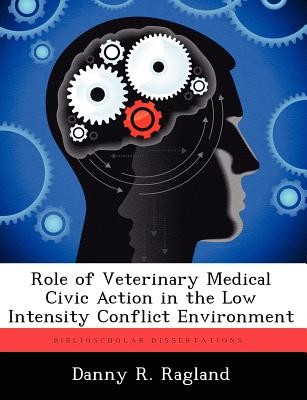
- We will send in 10–14 business days.
- Author: Danny R Ragland
- Publisher: BiblioScholar
- ISBN-10: 124936664X
- ISBN-13: 9781249366645
- Format: 18.9 x 24.6 x 0.7 cm, softcover
- Language: English
- SAVE -10% with code: EXTRA
Role of Veterinary Medical Civic Action in the Low Intensity Conflict Environment (e-book) (used book) | bookbook.eu
Reviews
Description
This study examines the use of veterinary medical civic action as a means to achieve internal defense and development objectives in the low-intensity conflict environment. It considers veterinary programs as an alternative available to Third World countries in areas where agriculture and livestock production are major social and economic considerations. A comparative analysis of veterinary civic action projects in Vietnam and more recently in Latin America is conducted. Lessons learned are compared to determine the effectiveness of veterinary programs from animal health and human health improvement standpoints, as well as from a host nation stability standpoint. Additionally, a survey of veterinary professionals provides contemporary views on the employment of U.S. Army veterinary assets in Foreign Internal Defense Programs. Among the many conclusions that can be drawn from this investigation are: many of the mistakes made in Vietnam are being made today in Latin America, such as assignment of U.S. military personnel without training in civil affairs concepts, language, or host nation orientation, emphasis on training host nation personnel is secondary to training of U.S. personnel; projects are isolated, short-term in nature, and are not integrated into an internal development strategy involving the host nation government as the primary actor.
EXTRA 10 % discount with code: EXTRA
The promotion ends in 16d.16:16:38
The discount code is valid when purchasing from 10 €. Discounts do not stack.
- Author: Danny R Ragland
- Publisher: BiblioScholar
- ISBN-10: 124936664X
- ISBN-13: 9781249366645
- Format: 18.9 x 24.6 x 0.7 cm, softcover
- Language: English English
This study examines the use of veterinary medical civic action as a means to achieve internal defense and development objectives in the low-intensity conflict environment. It considers veterinary programs as an alternative available to Third World countries in areas where agriculture and livestock production are major social and economic considerations. A comparative analysis of veterinary civic action projects in Vietnam and more recently in Latin America is conducted. Lessons learned are compared to determine the effectiveness of veterinary programs from animal health and human health improvement standpoints, as well as from a host nation stability standpoint. Additionally, a survey of veterinary professionals provides contemporary views on the employment of U.S. Army veterinary assets in Foreign Internal Defense Programs. Among the many conclusions that can be drawn from this investigation are: many of the mistakes made in Vietnam are being made today in Latin America, such as assignment of U.S. military personnel without training in civil affairs concepts, language, or host nation orientation, emphasis on training host nation personnel is secondary to training of U.S. personnel; projects are isolated, short-term in nature, and are not integrated into an internal development strategy involving the host nation government as the primary actor.


Reviews